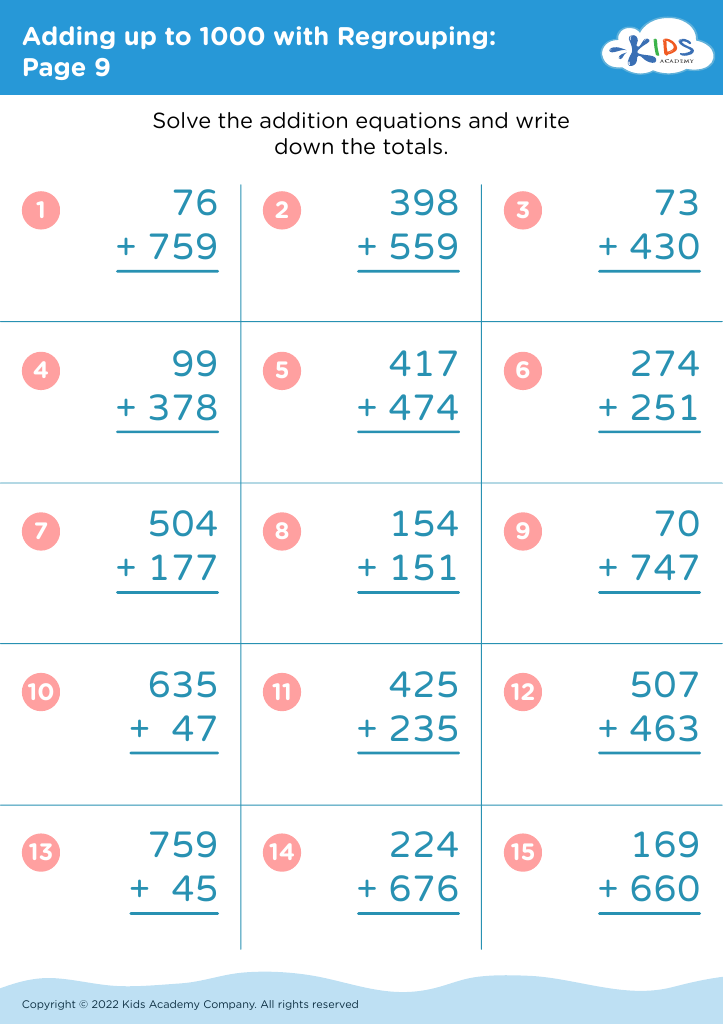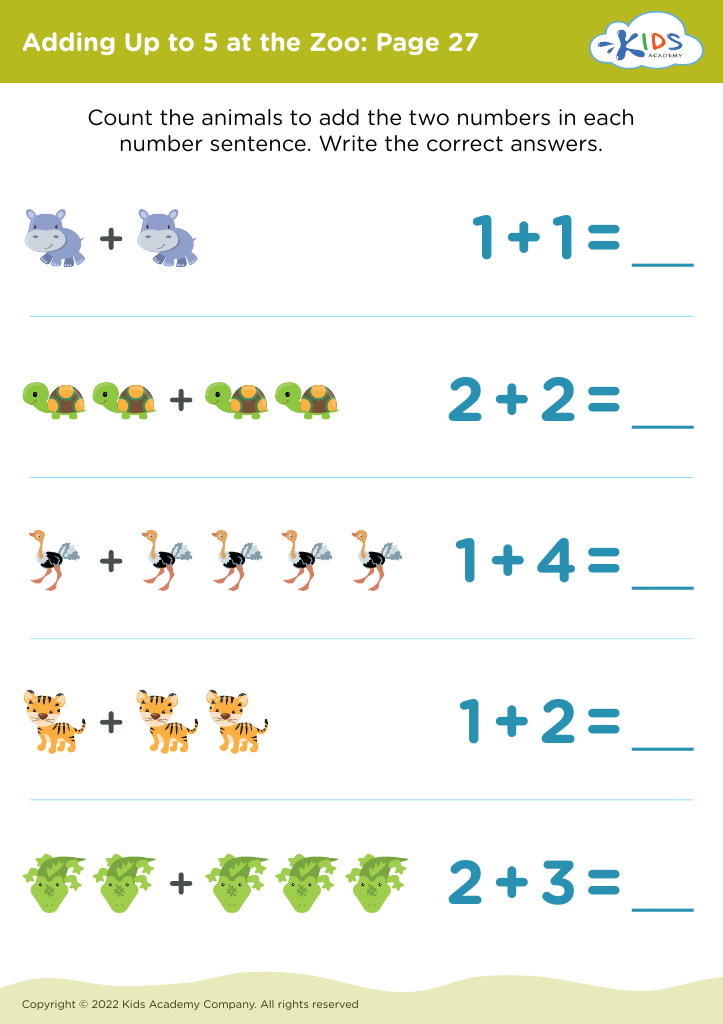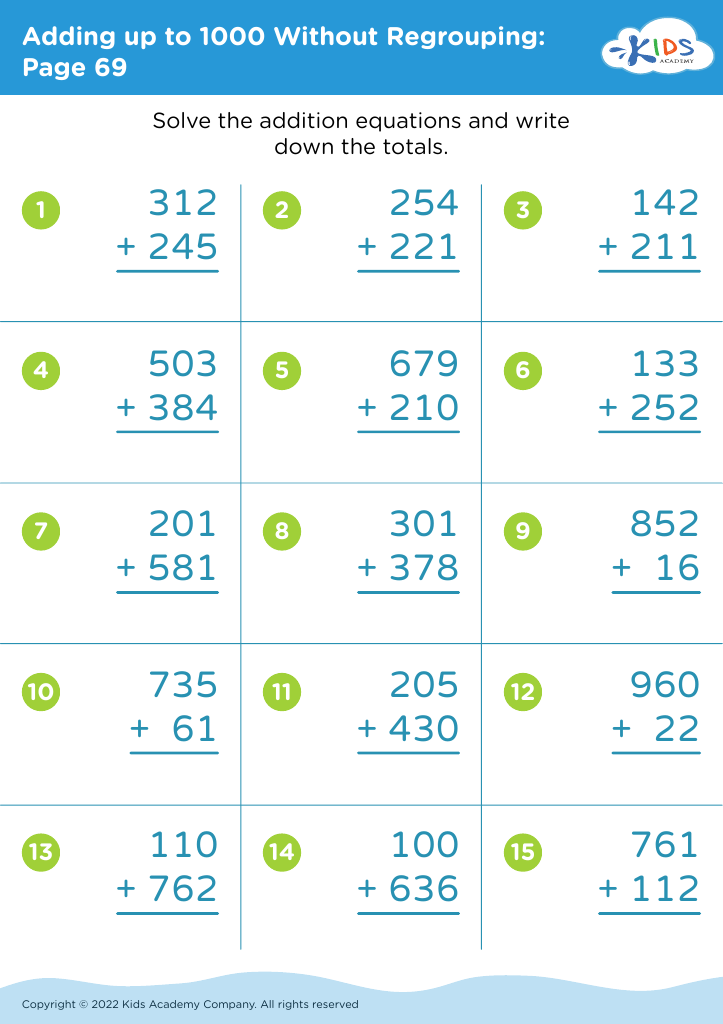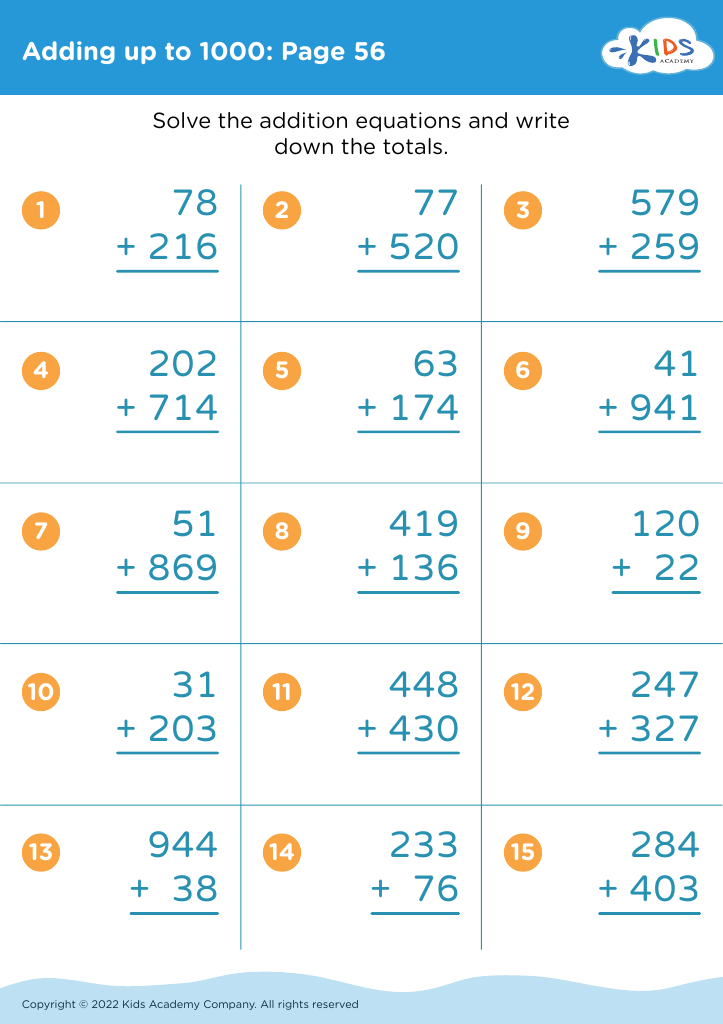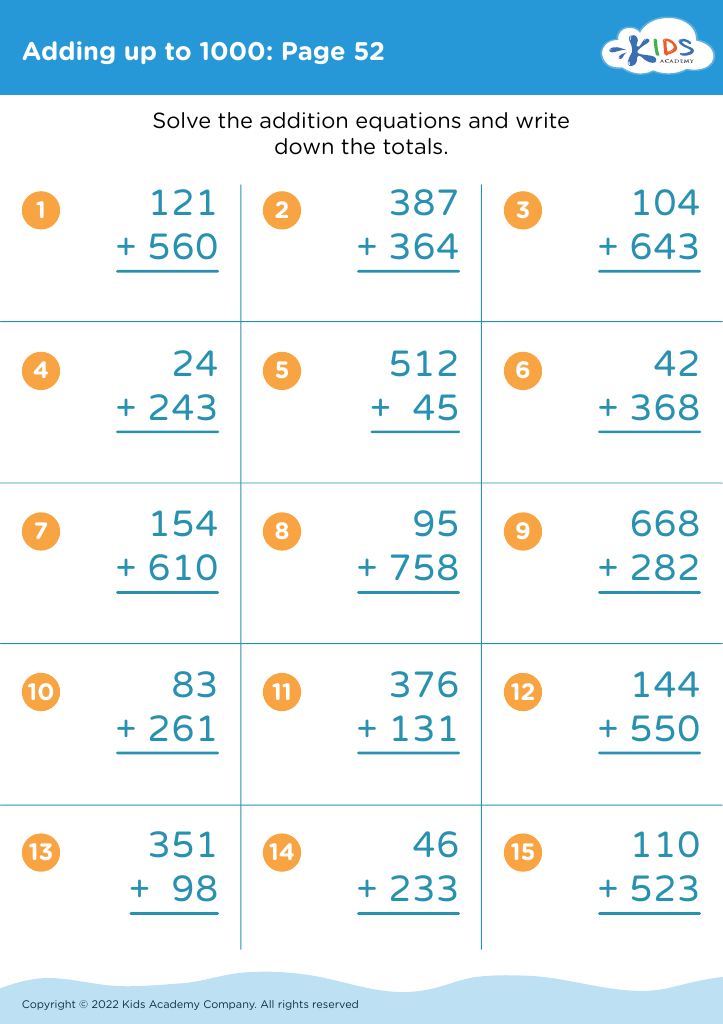Mathematical reasoning Addition & Subtraction Worksheets for Ages 5-8
39 filtered results
-
From - To
Discover our engaging Mathematical Reasoning Addition & Subtraction Worksheets designed specifically for children ages 5-8. These carefully crafted worksheets promote essential problem-solving skills while making learning fun. Through a variety of exercises, young learners will enhance their understanding of addition and subtraction concepts, helping them build a solid foundation for future math success. With colorful graphics and age-appropriate challenges, our resources encourage children to think critically and apply their math knowledge in real-world situations. Perfect for classrooms or home learning, our worksheets support the development of mathematical reasoning in an enjoyable and interactive way. Start exploring today!
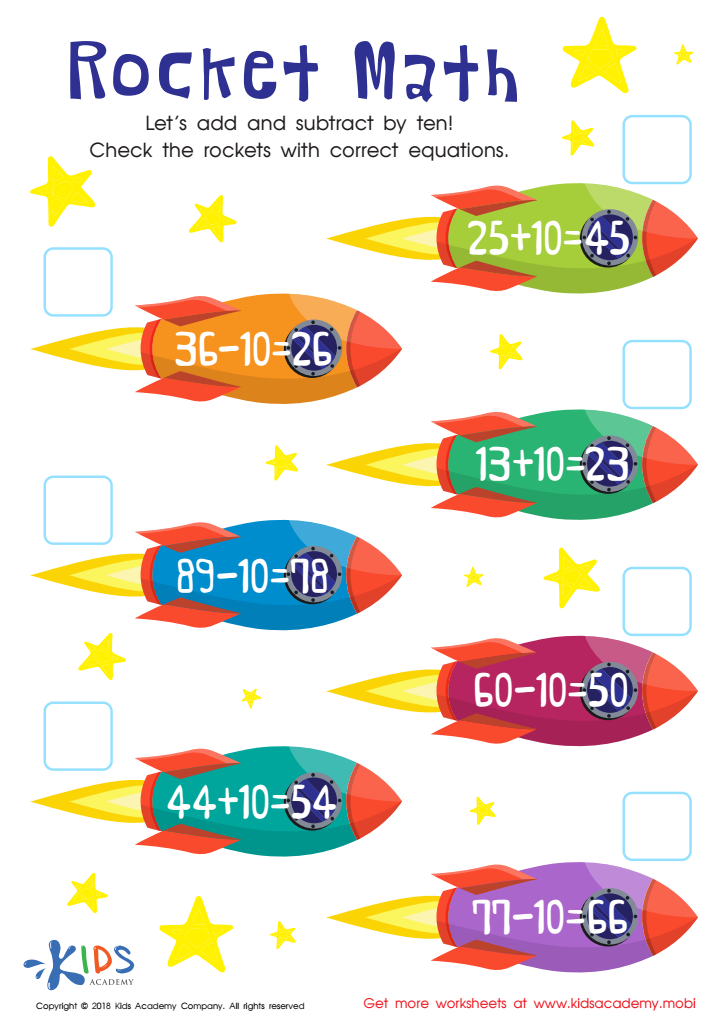

Rocket Math Worksheet


Tricky Problems Worksheet: Part 1
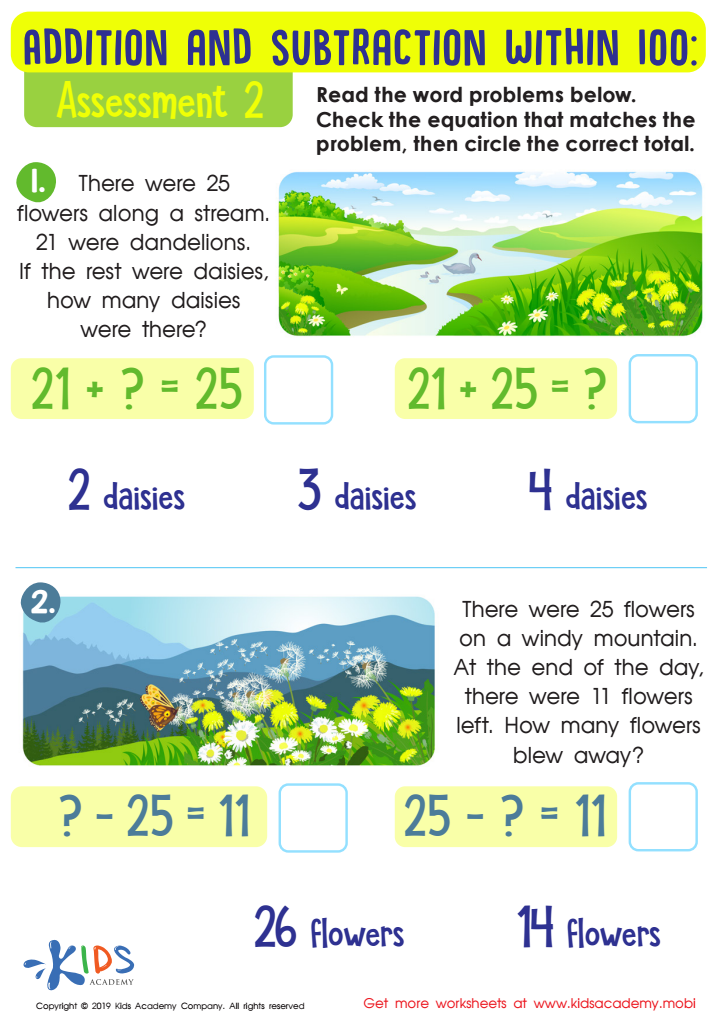

Assessment 2 Math Worksheet


7 Continents and 7 Seas Worksheet
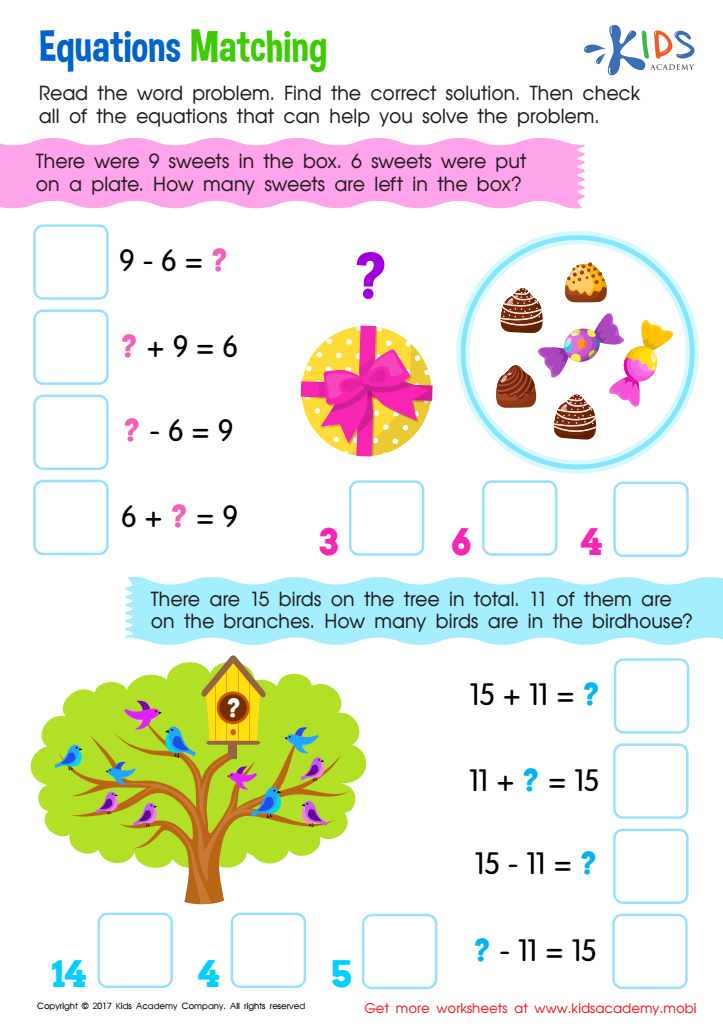

Equations Matching Word Problems Worksheet
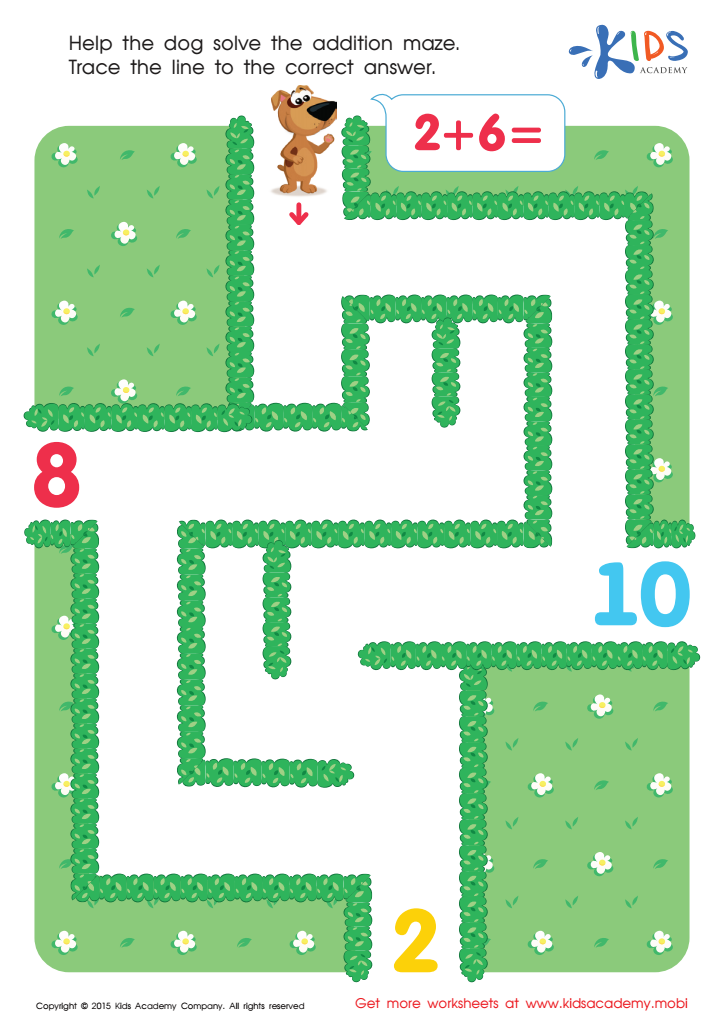

Two Plus Six Addition Worksheet
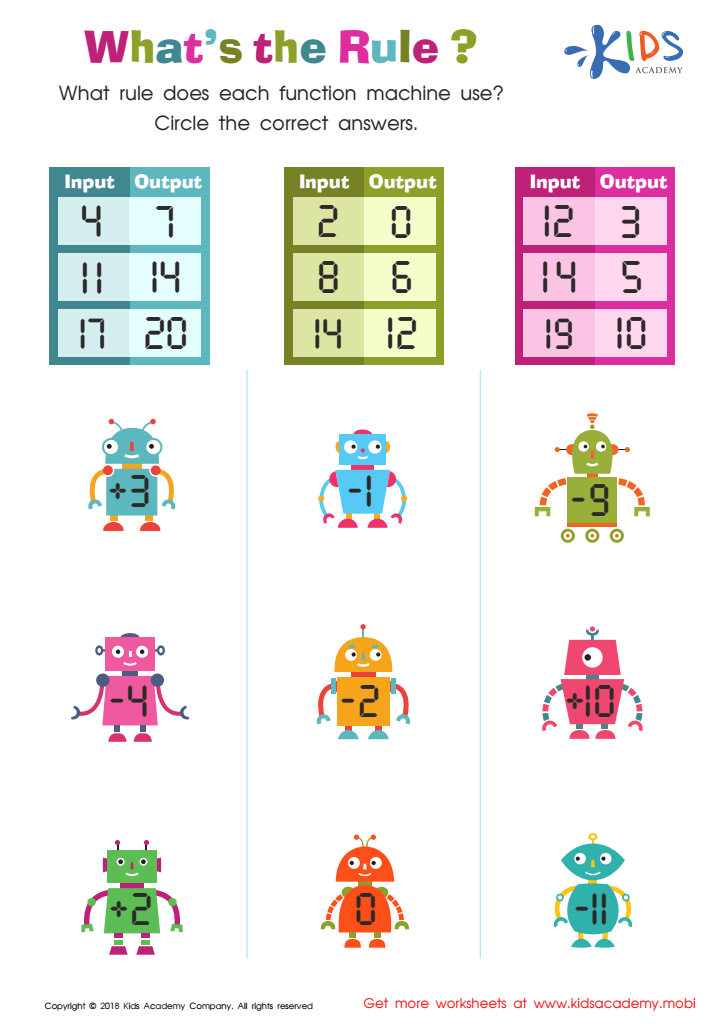

What's the Rule Worksheet
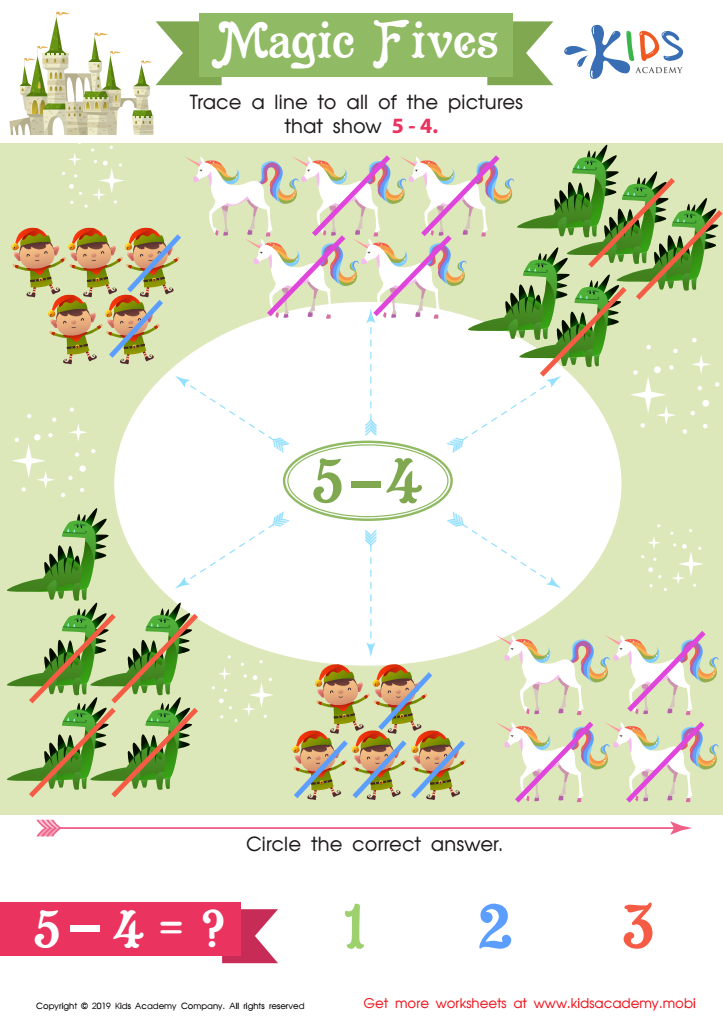

Magic Fives Worksheet
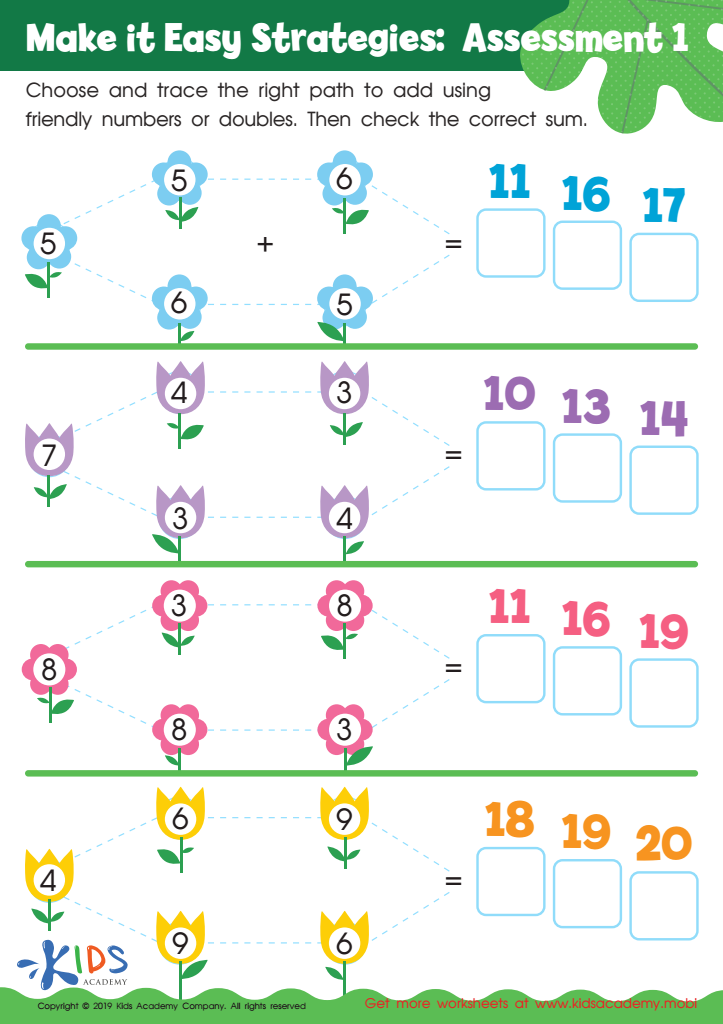

Make it Easy Strategies: Assessment 1 Worksheet
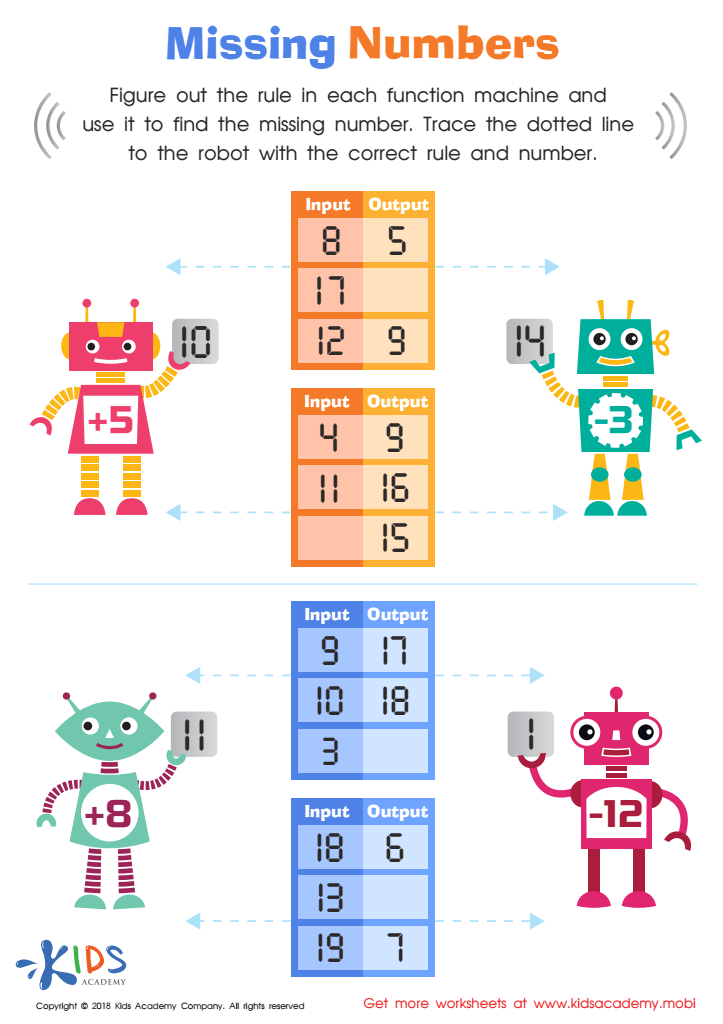

Missing Numbers Worksheet
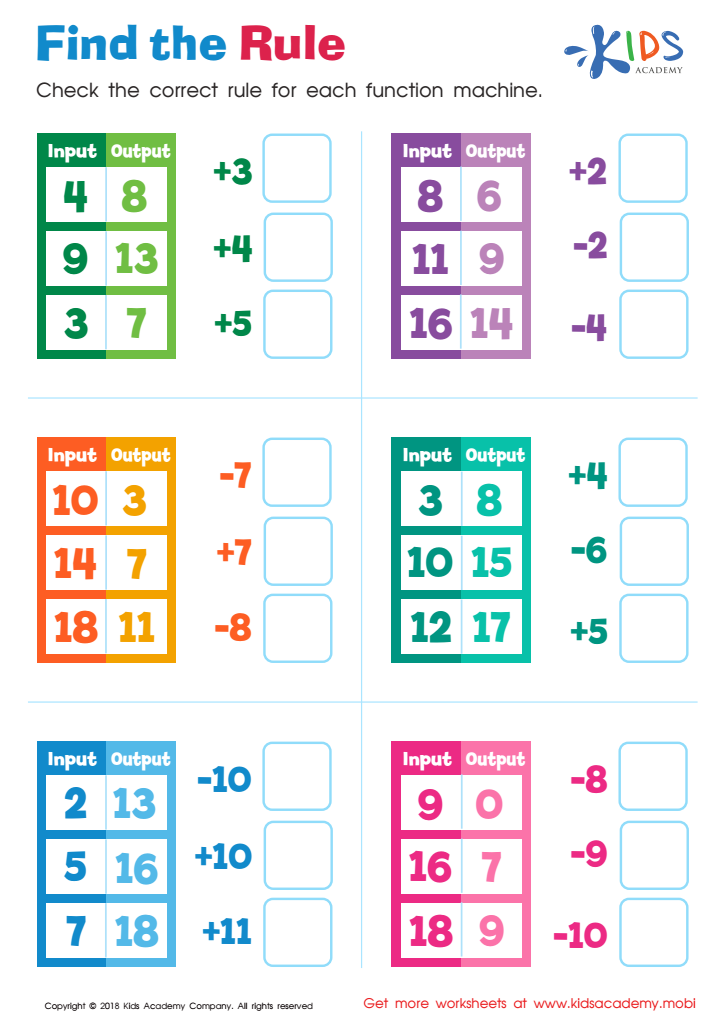

Find the Rule Worksheet
Parents and teachers should prioritize mathematical reasoning in addition and subtraction for children aged 5 to 8 because this foundational skill set underpins future learning and cognitive development. At this age, children are beginning to grasp the concept of numbers and their relationships, which is essential for building mathematical understanding. Strong reasoning in addition and subtraction helps children develop problem-solving skills, critical thinking abilities, and the confidence to tackle more complex mathematical concepts later on.
Furthermore, mathematical reasoning fosters a growth mindset as children learn to approach challenges, explore different strategies, and understand that making mistakes is part of the learning process. Engaging in discussions about mathematical ideas, such as the commutative and associative properties, encourages children to verbalize their thought processes, enhancing their comprehension and retention of concepts.
Moreover, these skills are not only vital in academics but also relate to real-life situations, such as handling money, measuring ingredients for cooking, or planning events. By nurturing mathematical reasoning in young learners, parents and teachers set the foundation for a lifelong appreciation of mathematics, empowering children to become capable, resilient thinkers who can tackle the demands of modern life.
 Assign to My Students
Assign to My Students
